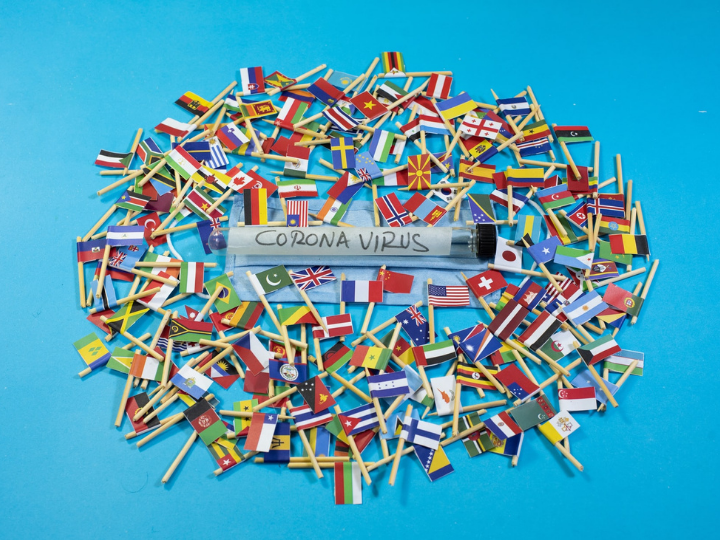by Andres Ortega*
Nobody knows how COVID-19 will evolve, whether it is going to last much longer or will run out of steam relatively soon. The “Spanish flu” of 1918-1920 claimed 50 million lives, according to most estimates.
That was the equivalent of 2.7% of the world’s population at that time. It later waned, although other flu variants continued to appear.
An ever-evolving virus
COVID-19 has been less lethal, despite emerging in a new era of globalization.
Testament to the virus’ ever-evolving nature, as societies we were as caught out by the emergence of the Omicron variant as we were the pandemic itself.
This happened despite many scientists foresaw the former (that is, a strain that is 25% more infections and 25% more likely to evade immune systems, but 25% less harmful than the previous Delta variant).
We now have vaccines and treatments for the disease are emerging. However, billions of people may still become infected in 2022, and the evolution of the virus may well produce “something that spreads even faster” according to The Financial Times
From pandemic to endemic?
Many scientists are optimistic that the pandemic is going to become endemic, meaning it will have to be managed just as flu is managed. Indeed, endemicity is the endpoint, as a recent McKinsey report points out.
However, some scientists are reluctant to rule out the possibility that the pandemic will persist for years to come, given that much of the underdeveloped world will remain unvaccinated.
They worry that new variants of varying levels of severity will emerge. We must prepare for this, and for its consequences. Stringent and lengthy lockdowns are not a long-term nor palliative solution, given the heavy costs they incur. ‘Zero Covid’ is not a real option, even in China.
The greatest challenge
Perhaps the greatest challenge the world facesis vaccinating the global population, as the World Health Organisation (WHO) never tires of repeating.
It is not a matter of generosity so much as one of collective intelligence. Dangerous variants will continue to emerge until the virus is combatted worldwide. And we are lagging far behind on this front.
We are showing that we do not know how to tackle this as a species. According to the WHO, 59% of the world’s population has received at least one dose, compared with 10% in the lowest income countries.
Promising antiviral treatments
At the current pace, these countries will take nine years to reach 70% vaccine levels, which is what the WHO judges to be the threshold needed to defeat the pandemic.
But in hot, poor countries, vaccines may not be the only or best solution. The oral antiviral treatments currently under development, which are easier to ship and administer, may prove more effective, albeit also costly.
Three crucial levers
The McKinsey report concludes that ‘in any scenario for the future of the COVID-19 pandemic, much depends on the ways in which societies respond, citing three levers as being especially important.
These are, first, the extent to which countries can roll out the new oral treatments that will counteract the disease’s severity; second, booster shots, which seem essential: and third, amid public fatigue, the right combination of public health measures.
It bears repeating that we are social creatures. Whether we like it or not, digital contact will not replace its face-to-face counterpart.
We are already learning, with resignation and varying degrees of patience, to coexist with the virus.
Impacts of an unending pandemic
An important effect of COVID-19 that has already been recorded is the drop in birth rates, especially in advanced societies, including China, and many other (but not all) countries.
This will lead to aging populations and smaller workforces (with widespread knock-on consequences including an even greater need for tasks to be automated).
Bigger state spending
Greater state spending on health is also set to continue, potentially to the detriment of other policy areas.
As such, programs like the Next Generation EU fund will prove especially important when economies getting back on track but are hamstrung by increasing debt and unforeseen inflation.
The U.S. Federal Reserve is raising interest rates amid the threat of inflation. This is something that the European Central Bank (ECB), which has begun to tentatively reduce its quantitative easing measures, has not yet considered. The winds of change are again blowing through economic policies.
If the pandemic goes on for much longer –and it has already been around for two years– social life will keep changing. not only in the realm of entertainment but also that of work and urban living.
Trends gathering pace
Since 2020, the ECB has been forecasting certain trends that were already gathering pace in 2021, despite some efforts to reverse them. They are set to continue their upwards trajectory in 2022 and beyond.
These include more digitalization and remote working, a shortening of supply chains (with the bottlenecks in such chains likely to persist) –and some concentration of markets.
Changes in the priorities of private consumption have also been noted, including the money previously spent on foreign holidays now benefitting domestic tourism. An increase in mental illness, a fundamental issue, is another trend.
A lasting new normal
All these trends and others are likely to accelerate if the pandemic drags on.
Whatever happens, our lifestyles are already being transformed. And although it would be desirable for the pandemic to come to an end or become endemic and less virulent, we must plan for the possibility that it will persist.
Conclusion
To paraphrase economic commentator Martin Sandbu, planning for a long or permanent pandemic is what living with the virus really means.
Which is not the same as ignoring it – quite the opposite. This will be a new normal, and we know neither how it is going to end nor how long it will last.
*senior research fellow at the Elcano Royal Institute, a major Spanish foreign affairs think tank
**first published in: www.theglobalist.com




 By: N. Peter Kramer
By: N. Peter Kramer
